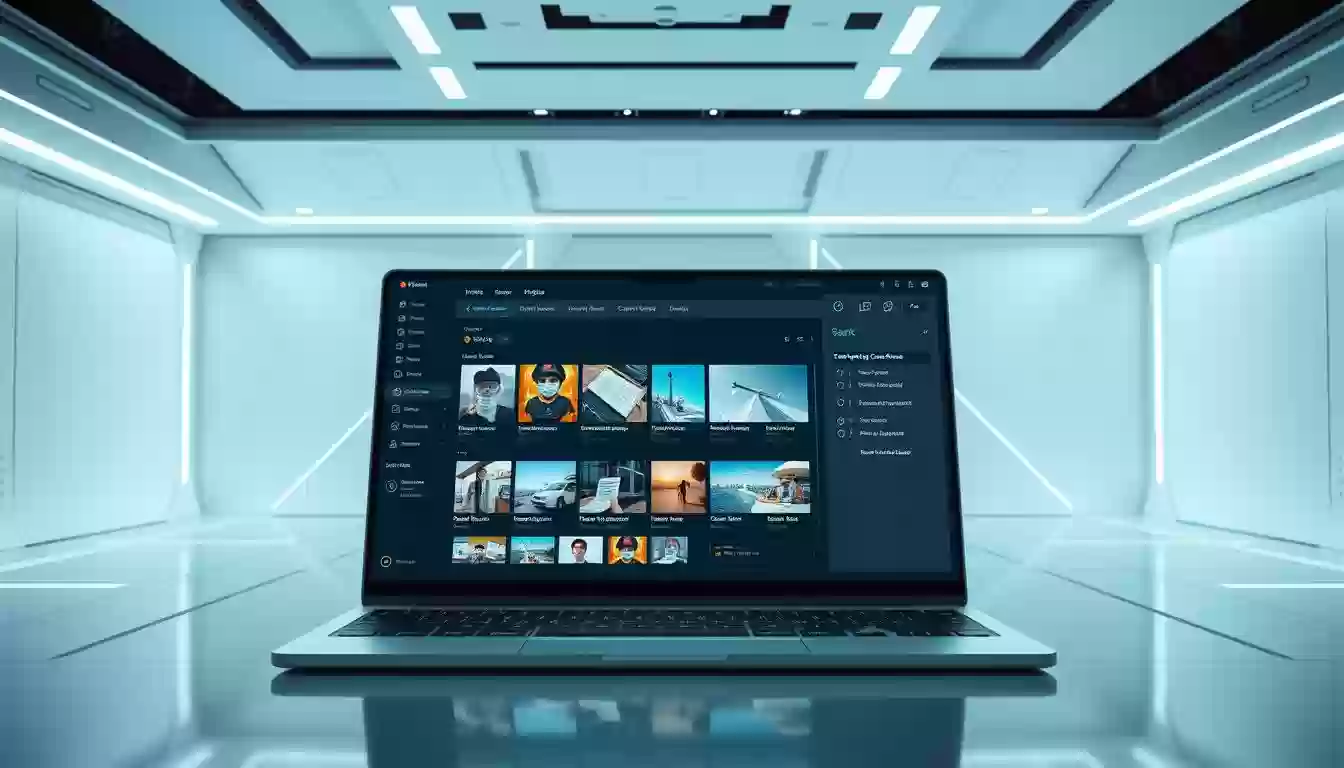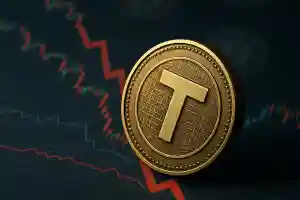Optimize Your Digital Assets: Strategies for Success
 07 Mar 25
07 Mar 25
In today’s fast-paced market, digital assets have become a cornerstone of modern business and technology. These electronically stored items, which include cryptocurrency, NFTs, and other forms of digital currency, are not just a new trend, they’re a transformative force. According to the IRS, digital assets are treated as property, making them subject to tax reporting and regulations. This means they can be used for payments, trading, and even as a store of value, much like traditional currency.
Blockchain technology is the backbone of these assets, enabling secure creation, storage, and transfer. Proper management of digital assets is crucial for maximizing their value and market performance. Understanding the differences between various types, such as Bitcoin, stablecoins, and NFTs, is essential for any business or investor looking to thrive in this space.
As we explore the dual role of digital assets as both investment vehicles and technological innovations, it’s clear that their impact extends beyond finance. They offer new opportunities for businesses to innovate and grow. In this article, we’ll break down the key concepts, strategies, and considerations for optimizing your digital assets, ensuring you’re well-equipped to navigate this evolving landscape.
Exploring the Landscape of Digital Assets
Modern businesses and technologies are increasingly relying on digital assets as a key component. These assets, which include cryptocurrencies, tokens, and NFTs, represent a significant shift in how value is stored, transferred, and utilized.
Digital assets are defined as electronically stored items that hold value, similar to traditional currency but with enhanced security and transparency. From a tax perspective, they are treated as property, making them subject to reporting and regulations. This dual role as both a store of value and a medium of exchange underscores their importance in today's market.
Blockchain technology plays a crucial role in the creation, storage, and transfer of these assets. It ensures secure ledger entries, enabling trustless transactions and ownership verification. Digital wallets, equipped with public and private keys, are essential for managing these assets, providing a secure method to store and exchange them.
Understanding the types of digital assets, such as Bitcoin, stablecoins, and NFTs, is vital for businesses and investors. Each type serves different purposes, from being a store of value to facilitating everyday transactions. As the market evolves, staying informed about regulatory developments, such as those discussed in the Financial Inclusion Frontier, becomes increasingly important for navigating this dynamic landscape.
Effective Management of Digital Assets for Business Success
As businesses grow, managing digital assets becomes crucial for efficiency and security. Proper management ensures that your digital assets are organized, easily accessible, and protected from unauthorized access.
Digital Asset Management Systems and Tools
Digital Asset Management (DAM) systems are essential for organizing and retrieving digital assets efficiently. These systems combine software and hardware to store various digital formats, making it easier to manage and retrieve them. By implementing a DAM system, businesses can streamline their operations, improve collaboration, and reduce costs associated with duplicate files and storage solutions.
Leveraging Metadata to Enhance Asset Value
Metadata plays a crucial role in enhancing the value of digital assets. It helps in categorizing and making assets more accessible. By tagging assets with relevant metadata, businesses can improve asset discovery and utilization. Modern DAM systems integrate with blockchain technology, providing transparency and security for transactions and ownership records.
For example, companies using DAM systems report substantial time savings and enhanced organizational efficiency. This leads to higher asset integrity and market responsiveness, which are vital for business success. The synergy between technological tools and smart metadata tagging drives business growth and innovation.

Navigating Tax, Regulation, and Technology Considerations
Understanding the complexities of tax, regulation, and technology is crucial for optimizing your digital assets. Proper management ensures compliance and maximizes value in a rapidly evolving landscape.
Tax Reporting and Compliance for Digital Asset Transactions
Tax reporting for digital assets involves specific forms and regulations. The IRS requires reporting capital gains or losses using Form 8949 and summarizing on Form 1040. Transactions are classified as short-term or long-term based on the holding period.
| Type of Transaction | Tax Implication | Reporting Form |
|---|---|---|
| Sale of Cryptocurrency | Capital Gains/Losses | Form 8949 |
| Receiving Cryptocurrency for Services | Income Tax | Form 1040 |
| Mining Activities | Taxable Income | Form 1040 |
Regulatory Challenges and Strategic Responses
Regulatory challenges include fragmented legal frameworks globally. Strategic responses involve proactive compliance and leveraging technology for better management and documentation of transactions.
Innovations in Blockchain and Cryptocurrency Trends
Blockchain innovations are enhancing security and transparency, influencing regulatory responses and technological advancements. These innovations support compliance and streamline transactions.
Conclusion
In the dynamic world of modern finance, optimizing digital assets has become essential for both businesses and investors. By understanding the definitions, classifications, and effective management strategies, individuals can unlock the full potential of these electronically stored items. Blockchain technology plays a pivotal role in enabling secure transactions and ownership verification, while metadata enhances the value and accessibility of these assets.
Tax compliance is another critical aspect, requiring accurate reporting using forms like Form 8949 and Form 1040. Adopting robust management systems not only improves transparency but also ensures that businesses can leverage these assets for growth and innovation. For a deeper understanding, exploring the digital asset framework can provide valuable insights.
As the financial landscape continues to evolve, staying informed and adapting strategies is crucial. Optimized approaches lead to improved efficiency, transparency, and competitive advantages. Embrace ongoing education and remain proactive in this rapidly changing environment to achieve long-term success in the digital realm.
FAQ
What exactly are digital assets?
Digital assets are electronic files that have value and ownership. They include cryptocurrencies, tokens, and NFTs, which are stored and transferred using blockchain technology. These assets can represent various forms of value, from currency to unique digital items.
How does blockchain technology secure digital assets?
Blockchain acts as a decentralized ledger, recording transactions across multiple computers. This decentralized system makes it difficult for unauthorized users to alter transaction records, ensuring the security and integrity of digital assets.
What are the different types of digital assets?
Digital assets can be categorized into fungible tokens, like cryptocurrencies such as Bitcoin and Ethereum, and non-fungible tokens (NFTs), which are unique and cannot be replicated. Each type serves different purposes, from currency to representing ownership of digital content.
How can I safely store my digital assets?
To securely store digital assets, consider using hardware wallets for offline storage, which is more secure than keeping them on an exchange. Enable two-factor authentication and keep your private keys confidential to protect your assets from unauthorized access.
What factors affect the value of digital assets?
The value of digital assets is influenced by market supply and demand, adoption rates, regulations, and overall market sentiment. Staying informed about these factors can help you make better decisions regarding your digital assets.
Are digital assets a good investment?
Digital assets can be a high-reward investment, but they come with significant risks, including market volatility. It's important to conduct thorough research and consider your risk tolerance before investing in digital assets. Diversifying your portfolio can help manage risk.
How are digital assets regulated?
Regulations for digital assets vary by country and are evolving. They may cover areas such as anti-money laundering, taxation, and consumer protection. Compliance with these regulations is crucial to avoid legal issues and ensure smooth transactions.
Can I use digital assets for everyday purchases?
Yes, many businesses now accept digital assets like cryptocurrencies for payments. However, the adoption rate varies widely, and it's not yet as common as traditional payment methods. The use of digital assets for everyday transactions is growing as more merchants begin to accept them.
How do I get started with digital assets?
To begin, research a reputable exchange to purchase digital assets. Set up a secure wallet, enable two-factor authentication, and start with a small amount to familiarize yourself with the process. Educating yourself about the market and security practices is essential for a smooth experience.





























